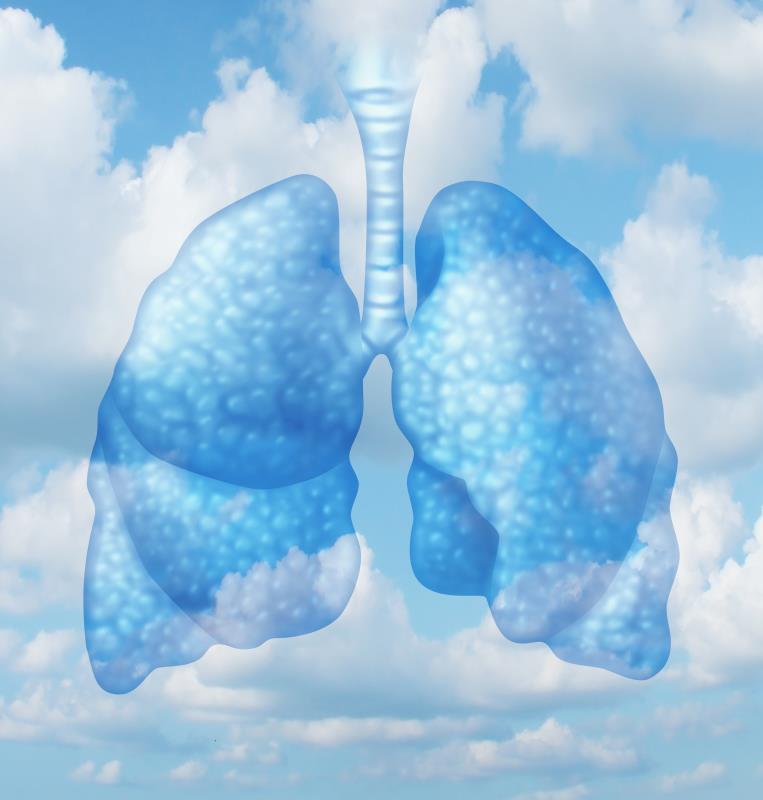Oral masitinib helps for severe asthma uncontrolled on steroids





The first-in-class tyrosine kinase inhibitor masitinib significantly reduces severe asthma exacerbations in patients who are uncontrolled on oral corticosteroids (OCS), regardless of their baseline eosinophil counts, according to a study presented at the ATS 2020 Virtual Meeting.
Masitinib is a small-molecule drug which targets mast cell activity by inhibiting c-KIT, LYN, and FYN — three kinases implicated in airway inflammation and asthma pathogenesis.
Also, the high kinase selectivity of masitinib limits the risk of potential off-target toxicity such as infectious complications, explained presenting author Dr Pascal Chanez from the University of Aix-Marseille in Marseille, France.
After an initial 2-week run-in period, 355 patients were randomized 2:1 to receive oral masitinib 6 mg/kg/day or placebo for 36 weeks in the phase III, double-blind, multicentre trial. Patients involved had a history of severe asthma for at least a year and were uncontrolled on an OCS dose of ≥7.5 mg/day. [ATS 2020, abstract A4210]
Regardless of baseline eosinophil level, the primary outcome of severe asthma exacerbation rate was significantly reduced by 35 percent in the masitinib arm vs the placebo arm (rate ratio [RR], 0.64; p=0.0014). Severe exacerbation refers to worsening asthma which leads to an increase from stable maintenance OCS dose for ≥3 days or hospitalization.
The treatment effect was further corroborated by sensitivity analyses, one of which was a prespecified subgroup analysis of patients with high baseline eosinophil (≥150 cells/µL). Among these patients, there was a 38 percent reduction in severe asthma exacerbations with masitinib vs placebo (RR, 0.62; p=0.0156) — consistent with the primary analysis on the overall population.
While there are several FDA-approved biologics available for the treatment of severe asthma with an eosinophilic phenotype, none is available so far for noneosinophilic, T2-low asthma — which presents a huge unmet need.
“Therefore, masitinib presents a potential new treatment for biologic-ineligible patients whose baseline eosinophil is ≤300 cells/µL or those in failure to biologics,” Chanez stated.
Heavy steroid users benefit more
In a sensitivity analysis by OCS use, the reductions in severe exacerbation rate was 41 percent in patients with cumulative OCS use of >500 mg (RR, 0.59; p=0.0092) and 51 percent among those with cumulative OCS intake of >1,000 mg (RR, 0.49; p=0.006).
“Benefit of masitinib was greatest in patients with higher cumulative use of OCS — which indicates more severe asthma that is harder to control,” Chanez said.
The reduction was most pronounced among patients with high baseline eosinophil who also had high cumulative use of OCS — by a significant 71 percent with masitinib vs placebo (RR, 0.29; p=0.0003).
“Safety was consistent with known masitinib profile, with no new signals,” reported Chanez.
The proportion of patients with ≥1 adverse event (AE) was 83.4 percent in the masitinib arm vs 82.0 percent in the placebo arm. The rates of serious AE were 17.7 percent vs 16.5 percent, respectively, and 48.0 percent vs 45.9 percent, respectively, for severe AE.
“Masitinib demonstrated a positive benefit/risk ratio over a sustained period and may provide a new treatment option in severe asthma, irrespective of baseline eosinophil level,” Chanez concluded.